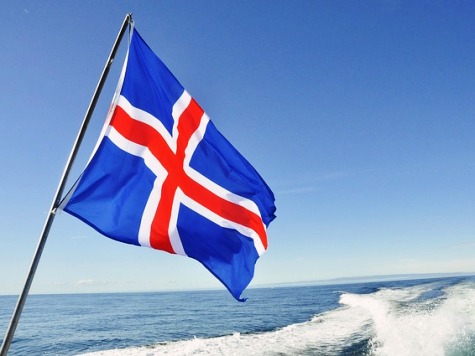The lesson comes too late for the United States, but there it is: after the US abandoned its military base and its foreign policy influence in Iceland in 2006, both Russia and China are now showing how keen they are to fill the void and take advantage of the growing strategic importance of the island nation at the edge of the Arctic Circle.
It is more than just tiny Iceland’s rich fisheries and potential undersea mineral wealth that is attracting both the largest country in the world and the most populous.
In April last year, China agreed a free trade deal with Iceland, an independent nation of 320,000 people which refuses to join the European Union, the first such deal signed with any European state.
Meanwhile Beijing has been less keen to lock up a free trade deal with the EU, allowing negotiations pushed by Brussels to stall.
One thing driving the Chinese to get friendly with Iceland is the warming of Arctic waters. A thaw in the ice looks set to open what would the shortest sea route from Chinese factories to European ports, over the top of Russia.
In September last year, the 19,000 tonne Yong Sheng, the first Chinese ship to transit the Northeast Passage, completed her voyage, which the Financial Times called “historic…many hope that the Yong Sheng’s voyage presages a new era for the global shipping industry.”
The two week voyage took half the time of the traditional southerly route from Busan, in South Korea, to Rotterdam.
This new Asian trade route makes Iceland look less far-north and more dead-strategic.
Now Russia has now signalled it, too, means business in Iceland. President Putin’s government has appointed its most high-powered Arctic affairs specialist as ambassador to Reykjavik. Anton Vasiliev, a foreign ministry heavy-weight with a PhD in Economics from the USSR Academy of Sciences. He speaks Chinese, English and French. He has a CV heavy with nuclear disarmament negotiations along with experience in China and a posting to the United Nations. He was Russia’s most senior official at the Arctic Council from 2008 until his appointment to Reykjavik.
The Arctic Council, as Breitbart London reported earlier this month, is the organisation which brings together the eight nations with sovereign territory in the resource-rich Arctic region. The council is currently the target of French demands that the EU seize influence on the council, demands that are likely to fail because the council is dominated by Russia, the US and Canada.
Other members are Iceland, Finland, Norway, Sweden, and Denmark, which includes Greenland and the Faroe Islands.
So the EU is looking shut out of the Arctic, as the US is looking shut out of Iceland.
It didn’t have to be this way for America (Brussels is shut out and deserves to be after its bullying attempts to force Iceland to join the EU).
Hjörtur J. Guðmundsson, an Icelandic historian and journalist, wrote in February in Alaska Dispatch News: “The aim of the EU and China has in fact been to fill a certain vacuum of influence which was created after the United States military gradually withdrew from Iceland after the Cold War and then finally left in 2006.”
“Since World War II, Iceland has been considered in an American zone of influence but the withdrawal of the US military has resulted in a number of Icelanders looking more towards other parts of the world for security and support as well as trade.”
“The U.S. military was in Iceland for about six decades as the country continued to serve an important role during the Cold War in keeping an eye on Soviet military activities in the North Atlantic… Today Iceland’s strategic importance is rather economic and geopolitical than from the military point of view.”
Guðmundsson says the Icelandic government “has the policy of seeking stronger ties with the U.S.”
But somehow it is Russia and China who are seeking stronger ties with Iceland. What about America?

COMMENTS
Please let us know if you're having issues with commenting.